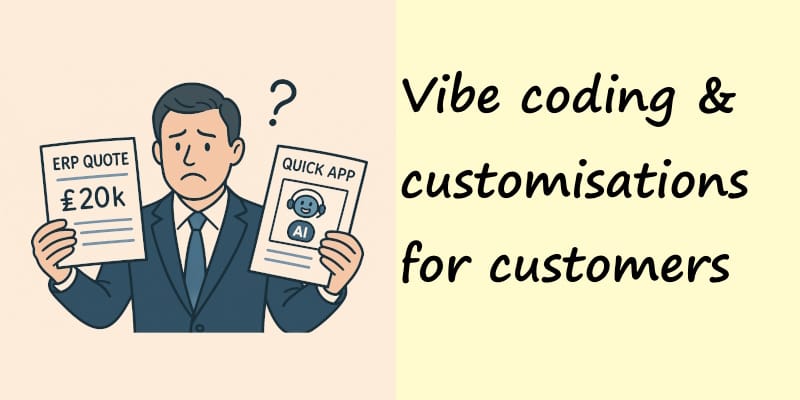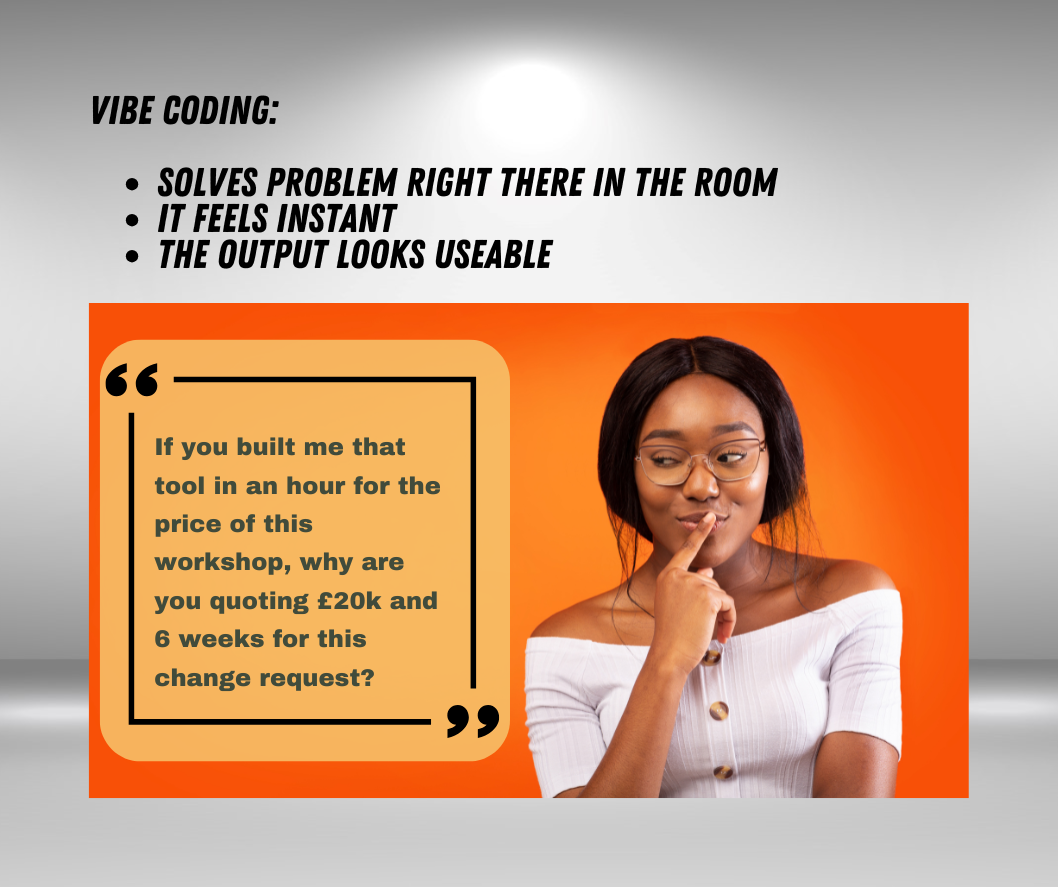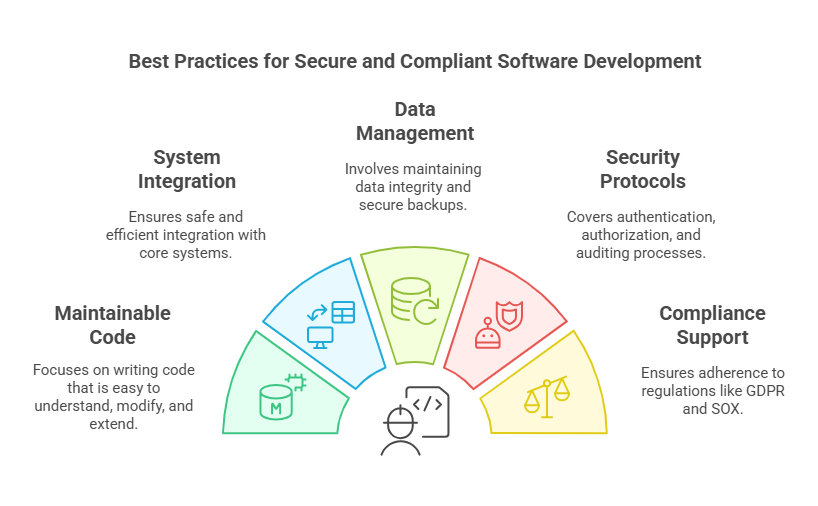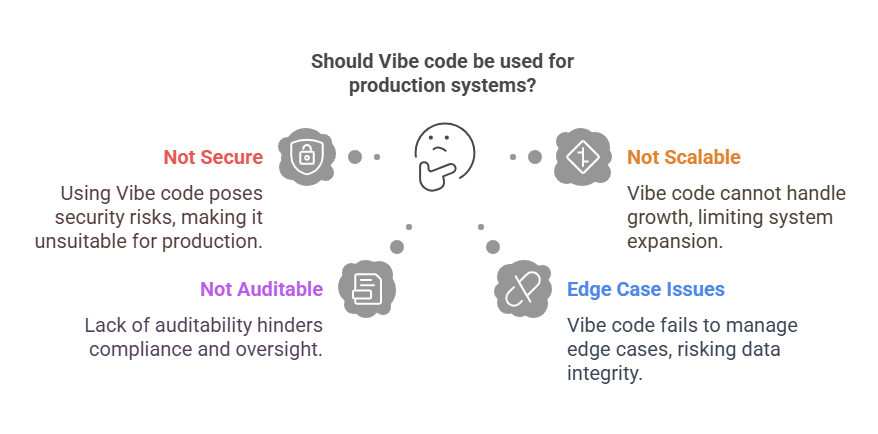The Vibe Coding Effect – Client Expectations and the Cost of Custom ERP/Enterprise Development
Vibe coding changes how clients see software — fast, disposable, AI-built apps done in hours. But once they see it, will they ever accept expensive custom dev again?

Rise of Personal & throwaway Software
There is a buzz term doing the rounds – Vibe Coding – coined by Andrej Karpathy of OpenAI in February 2025. In just a month, it has exploded across social media and is gaining traction fast.
A previous post explains Vibe Coding in the context of enterprise software consulting, What is vibe coding, and should enterprise software implementation and support consultants care?
The Vibe Coding Effect – Client Expectations and the Cost of Custom ERP Development
One of the most interesting — and potentially challenging — impacts of vibe coding will be how clients perceive the value and cost of traditional ERP custom development.
Once a customer experiences the speed and ease of a vibe-coded app — maybe something whipped up in a workshop in under an hour — it becomes difficult for them to accept the time, effort, and budget quoted for “proper” ERP custom development.
Vibe coding creates a new mental model for software creation:
- It feels instant.
- The output looks usable.
- It solves a problem right there in the room.
Suddenly, the client is thinking:
"If you built me that tool in an hour for the price of this workshop, why are you quoting £20k and 6 weeks for this change request?"

This is where ERP consultants and partners will need to reset expectations and reframe the value of professional software engineering.
Helping Clients Understand the Difference
Here is the conversation consultants will increasingly need to have:
“What we vibe-coded together was fantastic for solving a quick problem, right? But it wasn’t built for your business to rely on every day, year after year.”
Custom ERP development isn’t just writing code that works once. Vibe coding, by design, ignores all the things professional ERP software development builds in by default such as supporting your business long-term with SLAs and updates:

For one-off tactical tools? That is fine.
For core finance, supply chain, or HR processes? It is a risk that no serious business should take.

Positioning the Value of ERP Development
The smart move for consultants is to embrace vibe coding as a tool — a way to prototype, test ideas, and bring the client into the creative process — while positioning professional development as the long-term policy for their critical systems. It is also a tool to ease and improve standards of data manipulation and automate robust information capture and manipulation from the client.
“Vibe coding shows us what’s possible. Professional ERP development makes it real, safe, and sustainable.”
Opportunity: Faster Buy-in for Custom Work
Vibe coding might actually help justify custom development work.
Clients can feel the benefit of a tailored solution quickly. Once they see and "feel" how useful it is, then they may be more willing to invest in a robust, scalable version of it.
“You loved the prototype — now let us build the real thing your business can rely on.”
